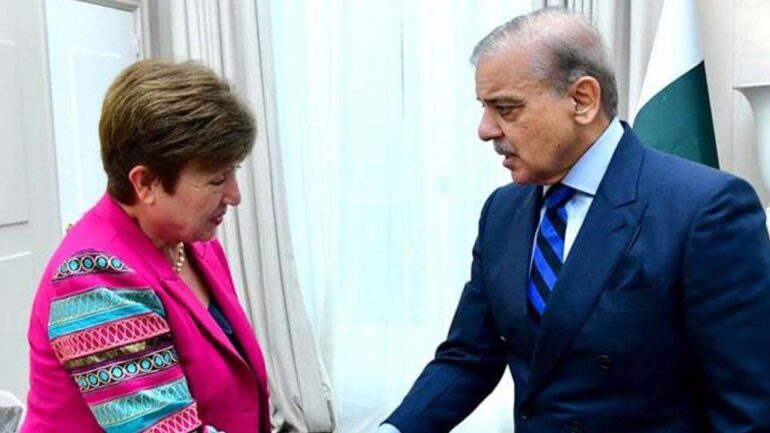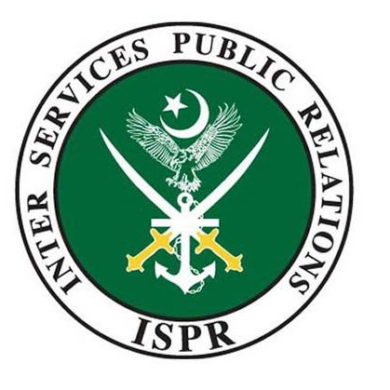The international Monetary Fund (IMF) staff and the Pakistani authorities have reached a staff-level agreement on the second and final review under Pakistan’s Stand-By Arrangement for disbursement of US$1.1 billion.
The disbursement is subject to the approval of the IMF’s Executive Board, said the IMF in a news statement.
“The agreement recognizes the strong program implementation by the State Bank of Pakistan and the caretaker government in recent months, as well as the new government’s intentions for ongoing policy and reform efforts to move Pakistan from stabilization to a strong and sustainable recovery,” the IMF noted.
“Given the timing of the Second Review mission, immediately following the formation of the new cabinet, we expect the review to be considered by the IMF’s Board in late April,” it added.
This came in the backdrop of a visit of the IMF team, led by Nathan Porter to Islamabad from March 14-19, 2024.
The team held discussions on the second review of Pakistan’s economic program supported by an IMF Stand-By Arrangement (SBA).
At the conclusion of the discussions, Mr. Porter issued the following statement:
“The IMF team has reached a staff-level agreement with the Pakistani authorities on the second and final review of Pakistan’s stabilization program supported by the IMF’s US$3 billion (SDR2,250 million) SBA approved in January 2024. This agreement is subject to approval by the IMF’s Executive Board, upon which the remaining access under the SBA, US$1.1 billion (SDR 828 million), will become available.
“Pakistan’s economic and financial position has improved in the months since the first review, with growth and confidence continuing to recover on the back of prudent policy management and the resumption of inflows from multilateral and bilateral partners. However, growth is expected to be modest this year and inflation remains well above target, and ongoing policy and reform efforts are required to address Pakistan’s deep-seated economic vulnerabilities amidst the ongoing challenges posed by elevated external and domestic financing needs and an unsettled external environment.
“The new government is committed to continue the policy efforts that started under the current SBA to entrench economic and financial stability for the remainder of this year. In particular, the authorities are determined to deliver the FY24 general government primary balance target of PRs 401 billion (0.4 percent of GDP), with further efforts towards broadening the tax base, and continue with the timely implementation of power and gas tariff adjustments to keep average tariffs consistent with cost recovery while protecting the vulnerable through the existing progressive tariff structures, thus avoiding any net circular debt (CD) accumulation in FY24. The State Bank of Pakistan remains committed to maintaining a prudent monetary policy to lower inflation and ensure exchange rate flexibility and transparency in the operations of the FX market.
The authorities also expressed interest in a successor medium-term Fund-supported program with the aim of permanently resolving Pakistan’s fiscal and external sustainability weaknesses, strengthening its economic recovery, and laying the foundations for strong, sustainable, and inclusive growth. While these discussions are expected to start in the coming months, key objectives are expected to include: (i) strengthening public finances, including through gradual fiscal consolidation and broadening the tax base (especially in undertaxed sectors) and improving tax administration to improve debt sustainability and create space for higher priority development and social assistance spending to protect the vulnerable; (ii) restoring the energy sector’s viability by accelerating cost reducing reforms including through improving electricity transmission and distribution, moving captive power demand to the electricity grid, strengthening distribution company governance and management, and undertaking effective anti-theft efforts; (iii) returning inflation to target, with a deeper and more transparent flexible FX market supporting external rebalancing and the rebuilding of foreign reserves; and (v) promoting private-led activity through the above mentioned actions as well as the removal of distortionary protection, advancement of SOE reforms to improve the sector’s performance, and the scaling-up of investment in human capital, to make growth more resilient and inclusive and enable Pakistan to reach its economic potential.
“The IMF team thanks the Pakistani authorities, private sector, and development partners for fruitful discussions and cooperation throughout this mission.”



